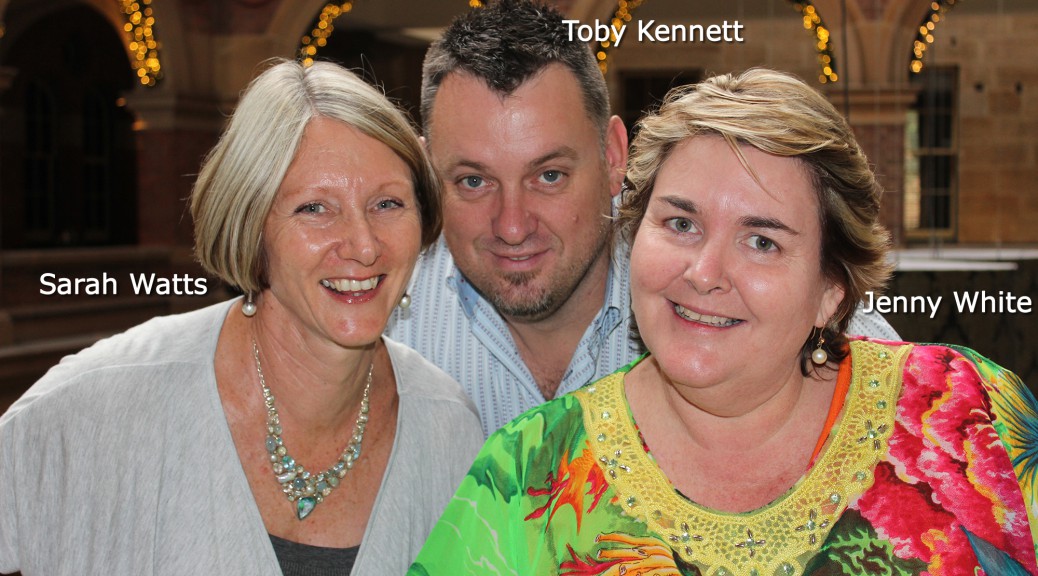Let’s begin with a question:
“How much of your marketing budget as a percentage goes towards attracting CUSTOMERS to your business?”
I don’t want to know how much you spend or what you spend it on, but rather WHO you spend it on…
If I were to hazard a guess, I would suggest that 100% of whatever you spend is targeted at attracting CUSTOMERS and not EMPLOYEES.
Why is this?
In most businesses, but particular in hospitality – we so often hear the cliched, throw-away line “our people are our difference”. This is usually backed up with something like, “we all have bars, beer, pokies, keno and food. But what really sets us apart from our competition is our staff. They are what make our business SPECIAL”.
This is a lovely sentiment for sure, but it gets me to wondering quite what “YOU” are actually doing to attract these amazing employees. Just recently, we were asked to run a workshop at the RSL & Services Clubs 14th Annual Conference on the subject of (How To) “Build a Winning Team”. In attendance were over 20 businesses ranging from small-ish hospitality venues to very large multi-nationals. As part of my research for the workshop, I studied each businesses’ website and social media presence to gain an understanding of what sort of effort they put in to attracting “winning candidates” and the results were quite disconcerting. Now, before I go any further – I’d like to say that these businesses are far from unique and credit where credit is due, they were in the workshop to learn more and to do something about it. So please don’t think that I’m beating them up in a public forum – quite the reverse! I am grateful for their attendance and was supremely impressed with the vigour and passion that they showed towards learning how to go about attracting people that would make a difference to their businesses. What I am hopefully also doing is using their businesses (collectively and anonymously) as examples of not knowing any better and as confirmation of the greater problem that is out there – VERY FEW BUSINESSES are doing much (if anything) to attract the sorts of candidates that will add value to their business. They are almost passive about the whole process and do not have a plan or an understanding…
So, what is “Employee Marketing”? Simply put, it is the methods, information and strategies used to attract candidates to look at your business and then WANT to WORK for your business. In the past, businesses very much took the approach of telling candidates what they wanted with little regard for what candidates wanted or needed.
The tables have somewhat turned. With the advent of the internet, ‘everyone’ is a research analyst and is fossicking around in the deepest darkest corners of your website and social media forums for clues, hints and confirmation of what it is like to work in your organisation. You see candidates are doing as much research on where they are going to work as employers are doing on resumes, background checks and references of employees.
I am hoping that most of you know that Google consistently ranks in the top 2 or 3 employers globally. Why? Google puts in a MASSIVE effort to lure talent to its numerous international offices and it broadcasts a very loud and very clear message – “Working at Google ROCKS! It’s fun. It’s creative. And we take care of you.” (These are my words, not theirs incidentally). If you have a moment, please take a look at Google Sydney’s Career Page (https://www.google.com/about/careers/locations/sydney/) – on there you’ll find a wealth of information about teams; video on what it’s like to work at Google; pictures of the offices (which are really “cool”) and lots of information about the sorts of things that go on in Google Sydney. Google basically does a really good job of “selling” all of the positives of working for them and answers a candidate’s questions before they are even asked.
Looking beyond Google and their careers page, a lot of candidates are doing their research via social media – Facebook, Instagram, Twitter, Flickr and LinkedIn are the main ones, but others are also being used to help candidates form a picture of a company’s:
- Culture (& how staff are treated/seen)
- Hiring Methods
- Values
- Structure
- Revenues
- Targets
- Customers
- Success
- Potential
- Pay Scales
- Corporate Responsibility
- Community Involvement
- Team Morale
- Etc.
- Etc.
In a competitive market where the great candidates get scooped up quickly, candidates are looking for reasons TO WORK for you and if they can’t find them online, but they can find positive information on your competition……..guess where they’re heading (or at least hoping to head)?
So, what can you do about this? Break it down in to bite-size chunks that start with a long-hard look at who you are as an employer and what you offer your employees. If the answer is “not much”, start to think about the sorts of things that you can start providing them with – a fruit basket; annual flu shots; a weekend off once a month (or more); additional leave; a fantastic staff room with all the mod-cons (Eg. XBOX/PS4; music; comfy seating; privacy cubicles) and a range of things that haven’t even been thought of as yet!
From there, start thinking about how you are going to get the message out there that this is what you provide to your staff, without it necessarily sounding like an “advert” – I’d suggest that pictures of your staff in the new staff room or of them having their flu shots on your ‘Careers or Employment” webpage AND your Facebook Page. And before you say, “REALLY????” – think about the number of club websites that have pictures of a (generally mature) Board of Directors in their Club blazers with a serious look on their faces. What sort of message do you think that sends to a future Gen-Y (or Gen-Z who will be coming through next)? A picture says a thousand words as the saying goes – so why not have some pictures of your staff having fun and being involved in the community? It will send a far better message about the sort of employer that you are than the picture of the (Stodgy) Board and (Cranky) Senior Management Team does!
Beyond this, try to put yourself in the place of a candidate or a future employee and think about the sorts of questions that they would like answered and what it is that will encourage them to accept a role with your organisation over one offered by another (remember, candidates rarely only apply for ONE role. They apply for many and if they’re a good candidate, chances are they’ll be offered a couple of opportunities. What is it that will make them accept YOURS?). Think of the employers out there that people can’t wait to work for and WHY – names such as: Google; Apple; Red Bull; SalesForce; StarLight Children’s Foundation & Red Balloon Days – and research what it is that they are doing to make them employers of choice. From there, try to mimmick some of their ideas – so long as they fit with your organisation’s culture and please keep in mind……..a fancy staff room or fresh fruit every day won’t make up for a toxic environment where staff are undervalued and treated poorly. The physical “things” that Google and the like are doing only work because they genuinely care about their employees and want them to be the best that they can be at what they do – – – – – – being creative! The reason Google wants them to be happy and therefore being creative is because Google recognises that in the long run, this makes them $$$…….a LOT OF $$$$$$$$$$$$$$$$$$$.
The correlation between happy employees and profits is a funny one. Anyone that has worked in a happy environment will tell you that it is not an easy thing to create and even if you do, success is not assured. But there is little doubt (the stats prove it) that successful organisations are most commonly HAPPY organisations and so investing in the happiness of your teams is much more likely to result in bottom line improvements (even with the additional costs)!
I realise that in the writing of these blogs, that the impression might be that I think that doing whatever it is in the subject of the blog is “simple” or “easy” or “common knowledge”. Let me categorically say that this is NOT the case! I recognise just how difficult Employee Marketing (and most of the subjects of my other blogs) is and that it is a journey that begins with something small, that hopefully gains momentum so that it becomes more commonplace. After all – think about the majority of things of true value that have come your way and then think about the effort that was involved to get them. Generally, nothing of any value comes without sacrifice, effort or commitment.









